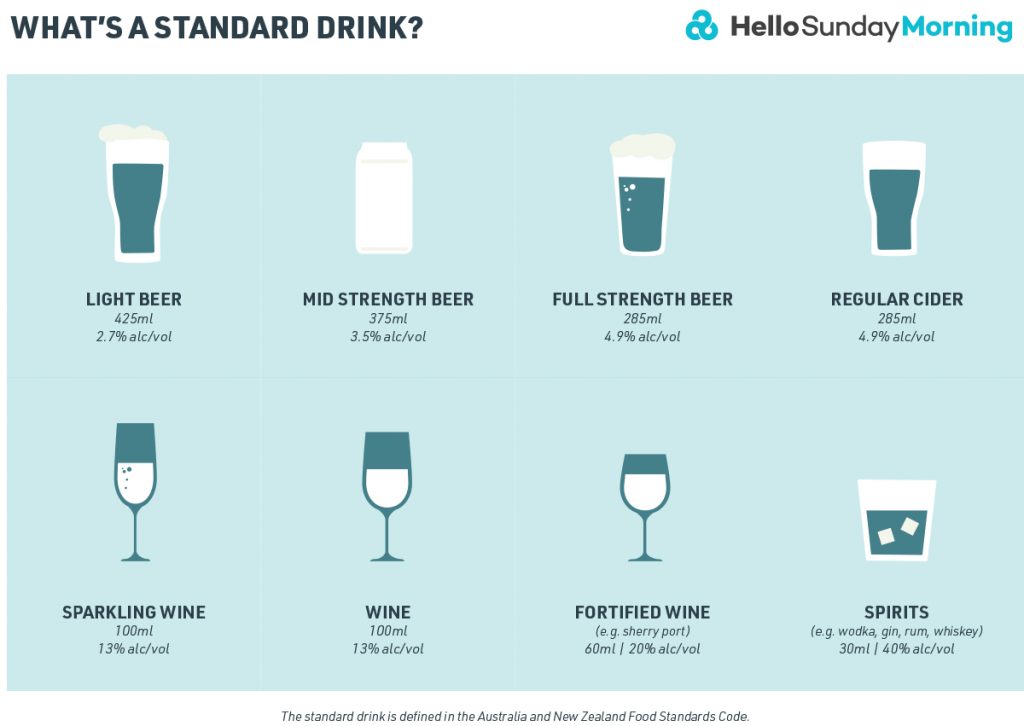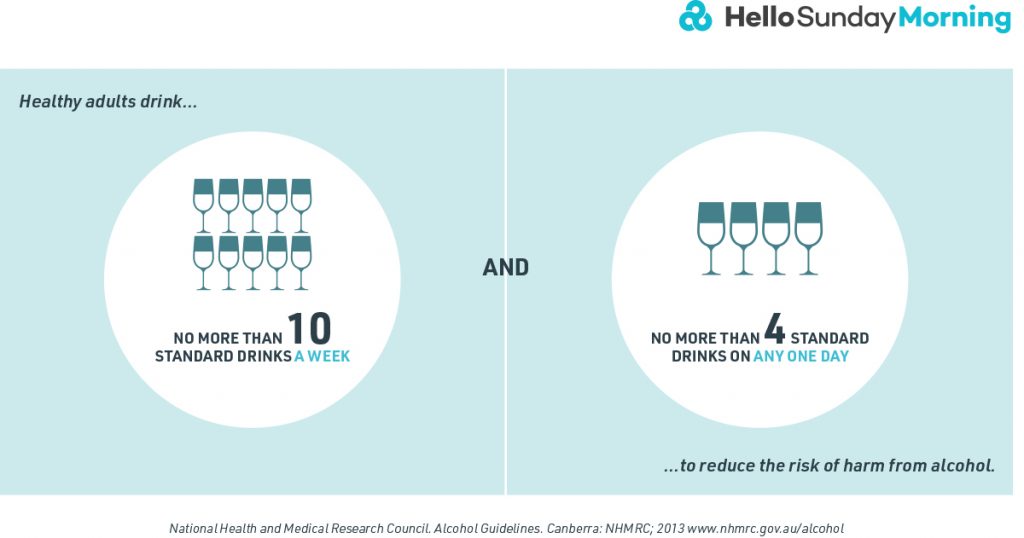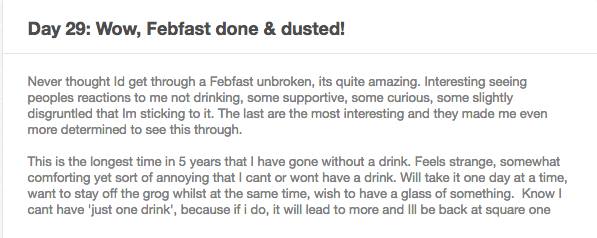Congratulation for those who completed the dry month. By now, you might have noticed some changes to your body after a month off booze. Health is certainly one benefit most people would notice. On the financial side, you might also have saved a few bucks from giving up alcohol for a month, which is always welcome especially during tough times!
But there are other aspects that are worth noting and celebrating too. Mostly internal and maybe not so obvious, such as:
- Character building – for giving it a go, having self-control and being persistent;
- Allowing more focus on different parts of your life – like relationships, work and family; and lastly,
- For taking back your Sunday mornings – or any mornings throughout the week without a hangover!
So, keep at it! We encourage you to continue on beyond a month off.
In the past we have written some tips to help keep you going after a dry month. You can find those resources below:
For something different, this year we want to challenge you to use the month off experience to take part in building a better drinking culture. Now that you know and have experienced the benefits of taking a break from alcohol, you might be in a good position to share your insights with others. So, why not use your insights to make a difference to better our drinking culture?
Below are some suggestions on how you can do that:
One of the top challenges we often face when quitting alcohol is the question ‘Why aren’t you drinking?’ While we don’t owe anyone an explanation for reasons to not drink – using this as an opportunity to open a conversation can be a great way to help better our drinking culture.
Use your answer to challenge their thinking and ask them what they think about it. A word of advice, be mindful of questions that might shame or seemingly be on the defensive side. Instead, use compassion and empathy when challenging people’s thinking around alcohol, as they might not be at the same stage of change as we are. (If you want to find out more about the Stage of Change, read our past blog here)
Here are some ideas on how to share your recent experience and start a conversation:
‘I quit drinking last month and started to notice some improvements in my health as well in other aspects of my life, such as [insert your own experience here]. So, I decided to keep going.’
‘It’s better for my mental health to drink less (or not drink). But I’m actually interested to hear your thoughts on the recent sober-curious movement. Have you heard about it or ever thought about it?’
‘I finally asked myself the question ‘why am I drinking?’. As what I found was that there were not many reasons that benefitted me in the long run. So, I’ve decided not to drink for now.’
Keep in mind, you might get a defensive or dead-end conversation. The aim is not to expect a positive response, but more to create awareness of a different thinking and a change in behaviour around alcohol.
In a subtle way, without words you are setting an example to people around you through your decision. You might like to demonstrate to your colleagues that you can cope without alcohol when things get tough or stressful, to your children or someone younger that you can enjoy winding down without wine; and to your friends that you don’t need alcohol to have fun or to be ‘fun’. This is a way to start normalising not drinking. Your simple action now can impact future generations to come.
Are you a part of a social group? Or in a position at work to help create a better drinking culture? This may be an opportunity (or dare we say, a higher calling) to raise awareness about excessive drinking. If you are a part of an organising group for a work function, try applying limits to the availability of alcohol as well as providing some alternative drinks. If you and your group are celebrating someone’s achievements, instead of a bottle of bubbly as a gift and having drinks at the pub to mark the occasion, use other gifts and choose other places to meet that involve little or no alcohol.
In the past, a few of our HSM community members have reached out to us for resources to share in the workplace. If you think this can help, we would love to hear from you. Or better still, if you have an idea on how we can help raise awareness of these important messages, please don’t hesitate to contact us!
One practical way to help build a better drinking culture is to raise money for causes around which you care about. Whether organising a running group for an event like City to Surf, hosting a bake sale or a sausage sizzle at your local Bunnings*, raising money is a great way to create awareness. If you want to support the work of HSM, or have some ideas to support us, our fundraising team would love to hear from you!
* For those who lives outside Australia and New Zealand, Bunnings is a DIY version of IKEA. Or the equivalent of Home Depot in America.
Finally, write a story about your own relationship with alcohol. At Hello Sunday Morning we believe that sharing stories can help other people who are on the same journey. There might be others who are going through the same challenges. By reading how you are going can be empowering and motivating for others to keep going. Whether writing a personal story on the HSM platform, sharing a short post on your IG, or telling your personal experience in a private conversation, it can be a testament and a way to help normalise sobriety. Your direct contribution to cultivating a better drinking culture!
Being available when others reach out
‘I’m a rugby league and union
player and copped a lot of sh*t at the start due to
our huge drinking culture but I kept at it and didn’t budge and now
some others message me privately
asking for advice.
[HSM] helped that happen.’
– Paul
As mentioned earlier – it is of value to use compassion and empathy when having conversations about drinking. Our attitude around people who drink alcohol makes all the difference. At Hello Sunday Morning, we are big on offering non-judgemental support and this is something we encourage others to foster too. The best way to do this is by continuing to practise your own beliefs around alcohol and being ready to listen. Keep at it, and perhaps, people will start noticing and might even go to you for advice. Just like our friend Paul! (Read his story along with others here)
Being a support to others can be quite daunting, so make sure you have some way to regulate your emotions and allow time to recover spent energy. When we look after ourselves well, we have a better chance of looking after others.
In perspective
It can be intimidating to compare our simple effort and the extensive complexity of Australia’s drinking culture (or wherever you are living). At times our effort might seem like a drop in the ocean, but our actions and words might make a difference to someone without our knowledge.
Here at Hello Sunday Morning, we can see a shift in the drinking culture over the past 12 years. If we look back 5 years ago, non-alcoholic drinks were almost non-existent, nowadays most bars and venues serve non-alcoholic alternatives. Much is still needed to be done, but there is certainly a better hope for our future.
Would you join us?







